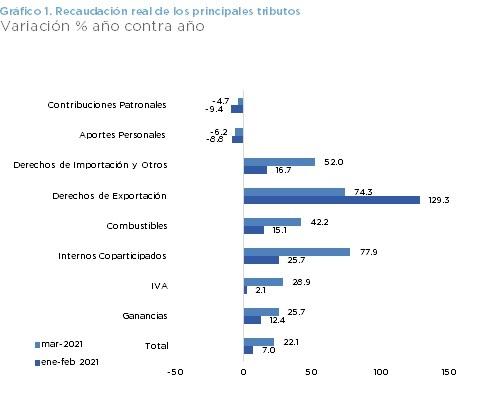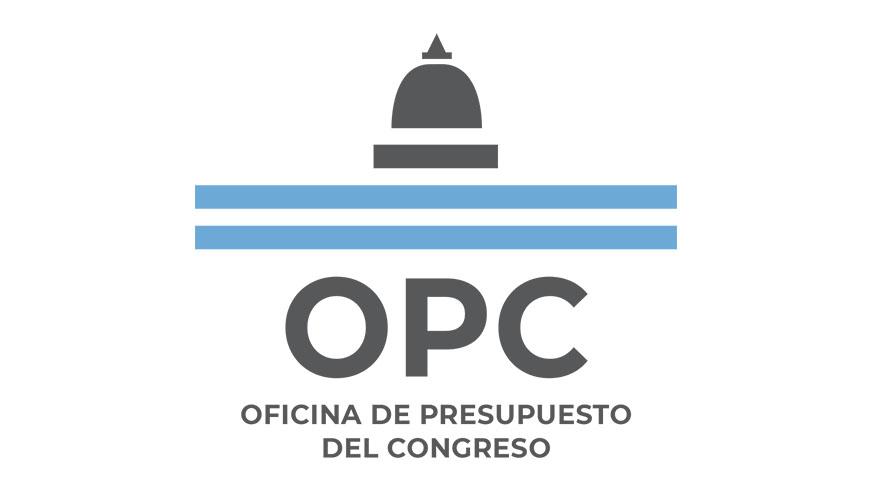
ANALYSIS OF NATIONAL TAX REVENUE – MARCH 2021
National tax revenue grew 22.1% in real terms in March with respect to the same month of the previous year, which implied the seventh consecutive term of increase above inflation and the highest growth since December 2016.
With AR$763.85 billion, the nominal increase was 72.2% year on year driven by the depreciation of the exchange rate (44.3% in one year) and regulatory changes that increased revenues from Wealth Tax, Co-participated Internal Taxes and Export Duties.
The increase in taxes related to foreign trade was not only influenced by the currency evolution but also by the increase in the price of exported goods and the low base of comparison, since last year many transactions had been settled before March. In addition, the Preventive and Mandatory Social Isolation, which slowed down the economic activity since March 20, 2020, also affected other taxes.
- Social Security resources continue to fall. Since June 2018, the wage bill has been systematically below the CPI due to a drop in registered employment and a salary depreciation in nominal terms.
- Because of the greater restrictions on the purchase of foreign currency and foreign travel, the PAIS Tax collected AR$5.78 billion in March, which represents a nominal decrease of 9.6% and a drop of 35.9% YoY since its creation.



